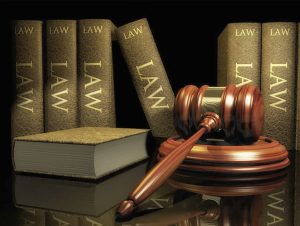 BY WILLIAM BRACKEN, PE, SI, CFM
BY WILLIAM BRACKEN, PE, SI, CFM
While Florida Statute 471 states that Florida’s Legislature deems it necessary in the interest of public health and safety to regulate the practice of engineering in Florida, there exist licensure exemptions for those whose practices fit within certain categories:
- Engineers working under the supervision of a licensed engineer who is in Responsible Charge;
- “In-house” engineers employed by a manufacturing or other business firm not providing a service directly to the public;
- Engineers employed by public utilities;
- Engineers employed by defense, space, or aerospace companies; and
- Engineers employed by the state or federal government.
Exemptions (2) through (5) are commonly referred to as “Industrial Exemptions.” This article is not offered in support or opposition of Industrial Exemptions, but is offered as background on why exemptions are thought to exist and how they are applied within Florida.
The regulation of design professionals is deemed necessary when the design professional is providing services to the public and there are no federal or industry regulatory boards or agencies looking out for the safety of the public. This regulation is accomplished by way of the licensure requirements found within F.S. 471.003 Qualifications for practice; exemptions.
471.003(1) No person other than a duly licensed engineer shall practice engineering or use the name or title of “licensed engineer,” “professional engineer,” or any other title, designation, words, letters, abbreviations, or device tending to indicate that such person holds an active license as an engineer in this state.
However, Florida Statutes then carve out industrial exemptions within 471.003 Qualifications for practice; exemptions.
471.003(2) The following persons are not required to be licensed under the provisions of this chapter as a licensed engineer:
(c) Regular full-time employees of a corporation not engaged in the practice of engineering as such, whose practice of engineering for such corporation is limited to the design or fabrication of manufactured products and servicing of such products.
(d) Regular full-time employees of a public utility or other entity subject to regulation by the Florida Public Service Commission, Federal Energy Regulatory Commission, or Federal Communications Commission.
(e) Employees of a firm, corporation, or partnership who are the subordinates of a person in responsible charge, licensed under this chapter.
(j) Any defense, space, or aerospace company, whether a sole proprietorship, firm, limited liability company, partnership, joint venture, joint stock association, corporation, or other business entity, subsidiary, or affiliate, or any employee, contract worker, subcontractor, or independent contractor of the defense, space, or aerospace company who provides engineering for aircraft, space launch vehicles, launch services, satellites, satellite services, or other defense, space, or aerospace-related product or services, or components thereof.
Based on the paper titled The Enigma of Engineering’s Industrial Exemption to Licensure: The Exception that Swallowed a Profession, published by the Liberty University School of Law (1), the Industrial Exemption surfaced around 1940 when leaders of industrial firms and public utilities mounted a counterattack against the sweeping tide of licensing laws. This attack, instead of seeking repeal of the licensing laws, sought exemption of industry employees. It is reported within the paper that industry asserted that, so long as a firm was willing to take responsibility for its engineers’ work and was liable for their negligence, licensing was unnecessary for protection of the public’s interests.
This has evolved into what is in place today, the safety of the public is protected by way of licensure regulation of the engineer when that engineer offers services to the public; or regulation of the product by way of product safety standards and product liability. Here in Florida, the Industrial Exemption is only afforded to those who meet the narrow requirements of F.S. 471.003(2)(a) through (j). So regardless of whether an engineer working within Florida is licensed or unlicensed, they are required to be familiar with Florida’s engineering licensure laws.
The Industrial Exemption is not however a free pass to practice engineering, broker engineering services, or call oneself a Professional Engineer. There exist restrictions within F.S. 471.023 Certification of Business Organizations and 471.031 Prohibitions; penalties.
471.023(1) states in part that offering engineering services to the public through a business organization is permitted only if the business organization possesses a Certificate of Authorization, commonly referred to as an engineering business license.
471.031(1)(b) states in part that “a person may not use the name or title ‘professional engineer‘ or any other title, designation, words, letters, abbreviations, or device tending to indicate that such person holds an active license as an engineer when the person is not licensed under this chapter.” Further, even those afforded the Industrial Exemption cannot use the title or personnel classification of “engineer” if the title includes or connotes the term “professional engineer,” “registered engineer,” “licensed engineer,” “registered professional engineer,” or “licensed professional engineer.”
In closing, as a word of caution, licensure is no guarantee that an engineer is performing competently, and conversely the lack of licensure should not be perceived as an engineer is any less qualified to perform competently. For more on Florida’s engineering licensure laws and rules, please visit the Florida Board of Professional Engineers’ website at FBPE.org.
(1) Spinden, Paul M., “The Enigma of Engineering’s Industrial Exemption to Licensure: The Exception that Swallowed A Profession” (2015). Faculty Publications and Presentations. Paper 72. http://digitalcommons.liberty.edu/lusol_fac_pubs/72
William C. Bracken, PE, SI, CFM, is a licensed Professional Engineer and Special Inspector in Florida, and is the president and principal engineer for Bracken Engineering, located in Tampa. Mr. Bracken has served on the FBPE Board since 2012 and served as Board chair for the years 2015 and 2016. He also served as the FBPE’s vice chair for the years 2013 and 2014.

